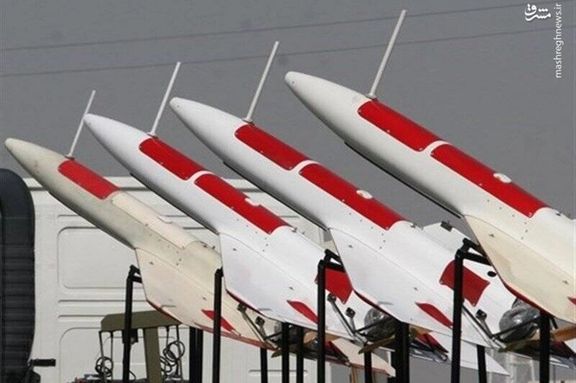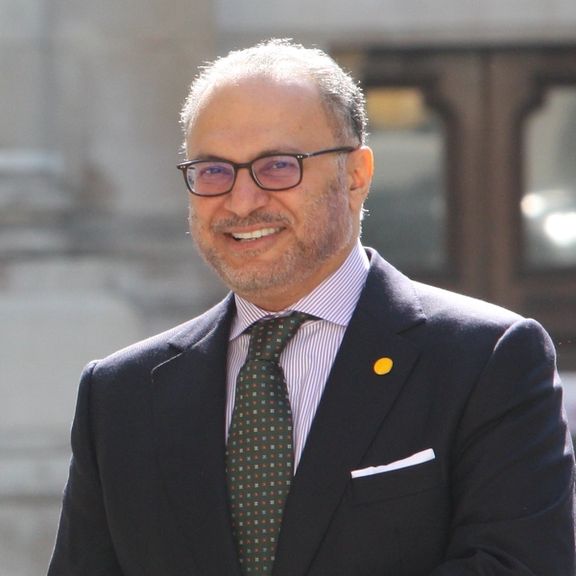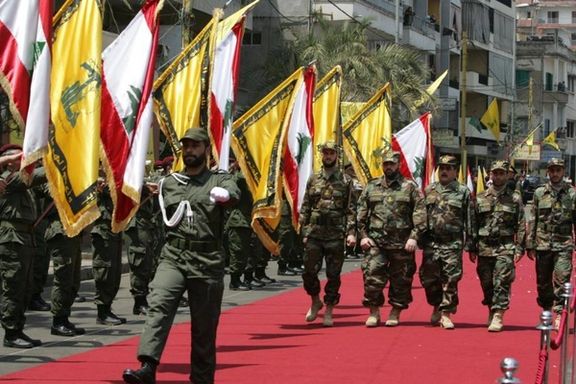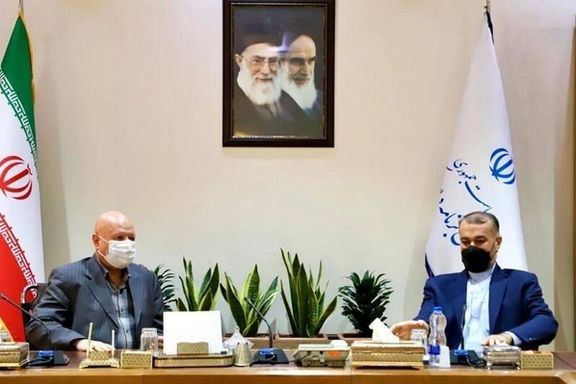Thousands Of Iranians Travel To Turkey During Black Friday Sales

Thousands of Iranians travelled to Turkey recently for shopping during Black Friday sales, as the American commercial tradition has spread throughout the world.

Thousands of Iranians travelled to Turkey recently for shopping during Black Friday sales, as the American commercial tradition has spread throughout the world.
The spokesman of Iran’s customs, Rouhollah Latifi told local media that 16,759 crossed land borders to turkey in what he said was an unprecedented rush to take advantage of sales as quality consumer goods in Iran are more expensive.
Latifi said that almost all travelers to Turkey in a two-week period returned to Iran from November 27-29, which proves they crossed the border for shopping purposes.
Tourists traveling to Turkey’s Mediterranean coast mostly use charter flights.
Although international clothing brands are sold in luxury malls in Iran, prices are much higher than in open economies like Turkey where every brand has its own retail outlets and large department stores have sales.
It is also possible that some of the shoppers were owners of stores in Iran who took advantage of sales in Turkey to easily stock up on merchandise that otherwise will cost more to get through official shipments. Ordinary citizens also have turned the shopping trips to small businesses, by bringing merchandise and making a profit.

A group of Republican and Democratic lawmakers in the US House of Representatives presented a bill Tuesday to restrict proliferation of Iran's military drone.
The lawmakers behind the proposed legislation, the Stop Iranian Drones Act (SIDA), say it clarifies that US sanctions on Iran’s conventional weapons program under CAATSA (The Countering America’s Adversaries Through Sanctions Act) include the supply, sale or transfer to or from Iran of drones.
The draft legislation was presented to the House of Representatives by House Foreign Affairs Committee Chairman Gregory Meeks (D-NY), Michael McCaul (R-TX), Ted Deutch (D-FL), and Joe Wilson (R-SC) Tuesday.
Iran’s military drone program has expanded in recent years and UAV’s have been more frequently used in attacks in recent months both on land and at sea.
The legislation also states that it is US policy to "prevent Iran and Iranian-aligned groups from acquiring unmanned Aerial Vehicles (drones)" that can be used in attacks against the United States or its partners and stipulates that those who cooperate with Iran in the field of drone activities should be punished.
“Deadly drones in the hands of the world’s greatest exporter of terrorism, Iran, jeopardizes the security of the United States and regional peace. Recent Iranian drone attacks on U.S. troops, commercial shipping vessels, and against regional partners, along with the export of drone technology to conflict zones, pose a dire threat,” Meeks said, adding that the legislation will send "a strong signal to the international community" that supporting the Iranian drone program will not be tolerated by the US.
"Whether the [drone] attack is launched by Iran, the Houthis, Iran-backed militia groups or any other Iran-sponsored entities, these attacks are intolerable,” McCaul, one of the two Republican lawmakers behind the proposed legislation said.
Admiral Mohammad Mousavi said earlier this month, after claiming a confrontation with the US navy in October, that Iran's drones some of which, including a suicide drone named Arash, were used in Zolfaghar 1400 wargames are capable of reaching even farther than its missiles which have a range of 2,000km.
"In fact, there is nothing such as iron domes to deter our drones. These drones can easily escape these [air defense systems] and hit their targets," Mousavi told Sobh-e No daily apparently in reference to Israel's Iron Dome air defense system.
US and allied officials say that Iran's proxies and allies in Yemen, Iraq, Syria, and Lebanon use Iranian-made drones against the US and its allied targets and argue that Iranian drones pose a threat to commercial navigation. Israel has also repeatedly warned about Iran's drone activities. Last week Israel’s defense minister, Benny Gantz, accused Iran of carrying out drone attacks on maritime targets from bases in Chabahar port and Qeshm island.
Iran has widely been accused of attacking tankers in the Persian Gulf region since 2019 when several vessels were hit by what was described as limpet mines. Iranian naval forces have also seized tankers, most recently in late October, when they forced a Vietnamese-flagged tanker into Iranian waters. In January the Revolutionary Guards (IRGC) seized a South Korean Tanker in the Persian Gulf.

A senior Emirati official said on Tuesday the United Arab Emirates would soon send a delegation to Iran as part of efforts to improve ties with rival Tehran.
"The sooner the better," Anwar Gargash, diplomatic adviser to the UAE president, told reporters when asked when a UAE delegation would hold talks in Tehran.
Asked whether the UAE was coordinating with Saudi Arabia on its moves on Iran, he said they were keeping its regional allies "in the picture"
"There is a recognition by the Iranians to rebuild bridges with the Gulf. We are picking that up positively," he said, adding that Abu Dhabi still shared concerns about Iran's regional activities.
The government of President Ebrahim Raisi has been emphasizing the need to improve relations with regional countries and held meetings with Saudi Arabia in April, but so far there has been breakthrough.
As the future of nuclear talks with Iran remain uncertain, the UAE might be hedging its bets to ensure its own security, being in the proximity of Iran. If talks succeed, Iran will get a financial windfall and come out of isolation somewhat. If the talks fail, tensions will spike in the region.
After the hasty US withdrawal from Afghanistan, there are also doubts about Washington's commitment to the region.
With reporting by Reuters

China, Russia and Iran pose three of the biggest threats to the UK in a fast-changing, unstable world, the head of Britain's foreign intelligence agency said Tuesday.
MI6 chief Richard Moore said the three countries and international terrorism make up the "big four" security issues confronting Britain's spies.
In his first public speech since becoming head of the Secret Intelligence Service in October 2020, Moore said China was the agency's single greatest priority as Beijing increasingly backs "bold and decisive action" to further its interests.
Moore said Iran also poses a major threat, and uses the political and militant group Hezbollah - "a state within a state" to fuel political turmoil in Lebanon and other neighboring countries.
He argued that Britain's spies must give up some of their deep-rooted secrecy and seek help from technology firms to win a cybersecurity arms race that is giving hostile countries and groups ever more capacity.
Moore said working with the private sector is a "sea change" for an organization enmeshed in secrecy. Until 1992, Britain's government refused to confirm the existence of MI6.
Report by AP

Iran’s capital Tehran on Tuesday registered red air quality alert and ranked as the world’s fourth most polluted city where all population groups are at risk.
The air quality index stood at 162, considered to be “unhealthy” by world standards. This means the degree of the pollution hanging over the city is so high that it is dangerous for all groups, including healthy people.
All ten top-ranking cities on Tuesday were in Asia with two Indian and one Pakistani cities at the top three spots, followed by Tehran.
Mojtaba Khaledi, a spokesman for emergency services, said that due to air pollution calls for assistance have increased by 28 percent.
Iran’s capital and other large cities grapple with pollution most of the year and even occasional rains have a short impact on improving air quality. Most private and public vehicles are old, with three-decade-old technology because of long-running economic problems and government controls.
A new problem added in the past few years is burning of mazut, a heavy diesel fuel, which is banned in most of the world. Iran’s natural gas production is declining, and power plants are forced to use the dirty fuel. The country has the second largest gas reserves in the world, but lack of investment and technology are gradually reducing output.

Iran is planning its next budget on the assumption that US economic sanctions will continue, but is forecasting more than one million barrels p/d oil exports.
In a meeting with Foreign Minister Hossein Amir-Abdollahian the head of Planning and Budget Organization Masoud Mirkazemi expressed hope that US sanctions will be lifted but said the budget is being planned on the assumption that sanctions will remain in place.
Iran’s new budget will go into effect in March 21, 2022 when the new Iranian calendar year starts.
US sanctions imposed in 2018 by former President Donald Trump, who withdrew from the Obama-era nuclear deal with Iran, have crippled normal and legal oil exports, denying Iran roughly 50 percent of its budget income.
The government has resorted to printing money and borrowing that have led to 50 percent annual inflation and a ninefold decline in the value of the national currency compared to 2017.

However, illicit oil exports said to be going mainly to China have increased since September 2020 and provide Iran with an undisclosed amount of revenue. But the nature of the illicit trade would certainly reduce the amount of foreign currencies Iran can receive. Middlemen who facilitate such shipments of oil make hefty profits and Iran must charge much less than global oil prices to entice buyers.
The Iranian Labour News Agency, ILNA reported on Monday that revenues forecast in the budget draft are based on exporting 1.2 million barrels of oil per day. Last year’s budget was also based on the same calculation, but clearly Iran this year has grappled with a 50-percent budget deficit. The reason is that with sanctions in place Tehran was never able to sell that amount of oil with market prices.
President Ebrahim Raisi’s administration needs more income it cannot get from oil exports, yet it has pledged to print less money to control inflation. To deal with this economic quandary, the president on Tuesday ordered his ministers to accelerate the sale of “unwanted government assets”.
Iran’s government is the biggest owner of industrial and financial companies in the country, with their huge assets, after more than four decades of implementing a quasi-state-controlled economic model. But selling assets amid a lack of money in the hands of banks and investors is not an easy or profitable venture. A grim political and economic outlook is another factor inhibiting government efforts to raise money.
Iran is currently engaged in nuclear talks with the world powers that are meant to bring back the United States in to the 2015 nuclear agreement, the JCPOA. This would lift the most damaging sanctions and provide a financial lifeline to Iran. Both foreign and Iranian media and observers are not very optimistic about a quick and positive outcome.